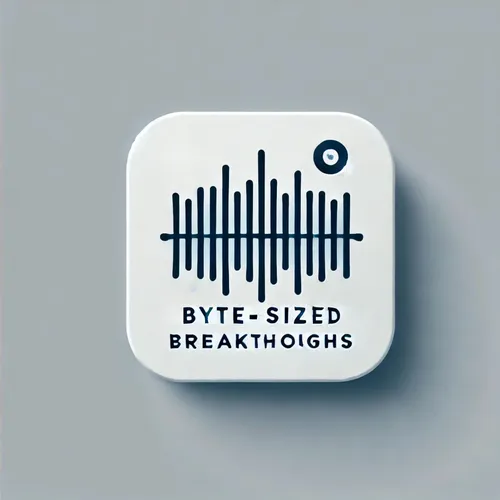
Byte Sized Breakthroughs
Byte-Sized Breakthroughs offers concise audio summaries of recent AI research papers. Each episode breaks down a single paper in areas like machine learning, computer vision, or natural language processing, making it easier to stay current with AI advancements.
The podcast covers topics such as large language models, mechanistic interpretability, and in-context learning. Episodes feature clear explanations of complex concepts, designed for efficient listening.
Ideal for researchers, engineers, and AI enthusiasts with limited time, Byte-Sized Breakthroughs provides a starting point for exploring cutting-edge AI research. While offering overviews, listeners are encouraged to refer to original papers for comprehensive understanding.
Curated by Arjun Srivastava, an engineer in the field, this podcast transforms spare moments into opportunities for learning about the latest in AI. Note: The voices you hear are not real people, but the content is carefully curated and reviewed.
- Update frequency
- every day
- Episodes
- 92
- Years Active
- 2024 - 2025

Long-CLIP: Extending Text Length for Improved Vision-Language Modeling

𝑓VDB: A Deep-Learning Framework for Sparse, Large-Scale, and High-Performance Spatial Intelligence

Unraveling the Connection between In-Context Learning and Gradient Descent in Transformers

Gradient Low-Rank Projection (GaLore): Revolutionizing Memory-Efficient LLM Training

Retrieval-Enhanced Transformers (RETRO): A Semi-Parametric Approach to Enhance Performance of Large Language Models

Foundation Models in Decision Making: Roles, Challenges, and Opportunities

FlashAttention: Fast and Memory-Efficient Exact Attention with IO-Awareness

PyTorch FSDP: Experiences on Scaling Fully Sharded Data Parallel

Hyper Networks: A Novel Approach to Learning Weights in Deep Neural Networks

DARTS: Differentiable Architecture Search

TiTok: A Transformer-based 1D Tokenization Approach for Image Generation

NerfBaselines: A Framework for Standardized Evaluation of Novel View Synthesis Methods in Computer Vision

Survey on reinforcement learning in reccomender systems

Models tell you what to discard

Training Large Language Models for Compiler Optimization

Metadata-based Color Harmonization for Multi-camera Surround View Systems

Extrapolated View Synthesis for Urban Scene Reconstruction

Planning-Oriented Autonomous Driving

SafePathNet: Learning a Distribution of Trajectories for Safe and Comfortable Autonomous Driving
